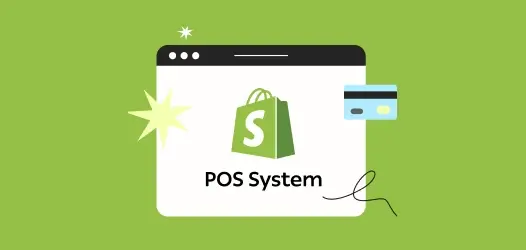Table of Content

WhatsApp App Vs. WhatsApp Business App Vs. WhatsApp Business Platform
In this post, we will share seven main differences between WhatsApp products.
It will help you identify the features of each product.
So you can easily choose the product that goes with your business needs.
WhatsApp offers three products:
- WhatsApp Messenger, which is for individuals.
- WhatsApp Business App, which targets small business owners.
- WhatsApp Business Platform, which is for medium and large businesses.

1- User Interface
What is a user interface?
The user interface (UI) is the point of human-computer interaction and communication in a device. It can include display screens, keyboards, a mouse, and a desktop appearance. It is also how a user interacts with an application or a website.
Both WhatsApp Messenger and WhatsApp Business App offer a user interface since they come as an Application.
The WhatsApp Business Platform comes in the API version. So, it doesn't offer a user interface. You must integrate it with a business messaging solution provider to use the platform, such as Kartly.io.

2- The Number of Concurrent Users
Only a single user can use WhatsApp and WhatsApp Business App with the feature of multiple devices.
What is the Multi-devices feature?
- You can use WhatsApp on up to four companion devices at one time but can only have one phone connected to your WhatsApp account at one time.
- You'll still need to register your WhatsApp account. Also, link new devices with your phone.
- If you don't use your phone for over 14 days, your linked devices will disconnect.
As a maximum, only four of your agents can reply to clients using four different devices.
But, the WhatsApp Business Platform allows an unlimited number of agents at the same time.
So, your agents can assign messages to colleagues, have internal chats, and help more customers.

3- Automated Reply
The feature is not available on WhatsApp. It is also basic on the Business App.
Brands can only use the App to send:
- Automated messages for greetings and away messages.
- Quick replies to ease the repetitive responses.
It also offers features like Labeling customer chats to stay organized.
Auto-reply on the WhatsApp Business Platform is unlimited.
You can't have a team available 24/7 to reply to requests and questions. But WhatsApp gives you the ability to send auto-replies.
So, you can integrate a chatbot to handle all customer messages.
A WhatsApp chatbot can answer questions and respond to requests. It is available to resolve queries day and night at any scale.

4- Automated Notifications
Auto notifications are not available on WhatsApp or WhatsApp Business App.
But, brands can use the API version to automate notifications.
You can automatically share unlimited promotional messages, such as cart abandonment notices.
You can also share automatic transactional notifications like bill and invoice issues.
In fact, the platform can integrate with any company's internal system, such as CRM and shipment systems.
The integration makes it easy to notify clients timely.
So, you can automate alerts and notifications such as order updates, delivery alerts, reminders, and more. All at a fraction of traditional messaging channels' cost while achieving high open rates.

5- Marketing Campaigns
The marketing feature is not available on WhatsApp. On the other hand, WhatsApp Business allows marketing but with limitations.
You can only share marketing messages with 256 people who added your business number to their contacts list.
But, the WhatsApp Business Platform allows an unlimited number of marketing campaigns. All is good as long as the message complies with WhatsApp policy.
You can send rich promotional messages to well-targeted leads.
You can even move your email marketing to WhatsApp. So, you will take advantage of up to 90% open rates and 30% click-through rates.

6- E-commerce
WhatsApp Messenger doesn't offer any e-commerce features.
It is for personal use only. So, businesses can't use it for commercial purposes.
- The Business App offers a manual cart.
- Customers won't check out the products added to their cart themselves.
- When you change your cart settings, it may take up to 24 hours to reflect the change.
- If you turn off the cart feature, you might still receive carts from customers within 24 hours.

But, the API version offers full integration with Facebook Catalog.
It also provides an easy shopping experience granted by conversational commerce.
The buyer can easily scroll through the catalog and add items to the cart. Then, he can share the order in a message format.

7- Pricing
Both WhatsApp and WhatsApp Business App are free of charge.
You just need to get the App from the App store.
The apps are free on both IOS and Android stores.

But, the WhatsApp Business Platform is a paid service.
WhatsApp Business Platform pricing is built out of three costs:
- WhatsApp fees.
- WhatsApp API hosting fees.
- Conversations management software fees.

In fact, we made a post about WhatsApp Business Platform pricing. You can check here.
Now It's Your Turn
Seven main features make the difference between WhatsApp products.
You just need to consider the differences. Then, you can choose the product that fits your business needs.
Share a comment in the down section once you make up your mind. Tell us which product you consider more suitable for your brand.
Table of Content
Table of Content
Resources to help you grow your Business

Does Shopify POS work on a desktop? Shopify POS apps for PCs
Let’s check why retailers want a POS Shopify for PCs and explore our expert pickles of the best Shopify POS desktop solutions.
.webp)
Bulk WhatsApp Messaging Program
Learn the difference between WhatsApp based, programs to send unlimited marketing campaigns and messages. Discover differences between QR programs and API.

Practical Tips to Improve Your Store's Visitor-to-Customer Conversion Rate
Discover practical tips to improve your store's conversion rate, such as automated notifications and popups based on visitors' behavior.









